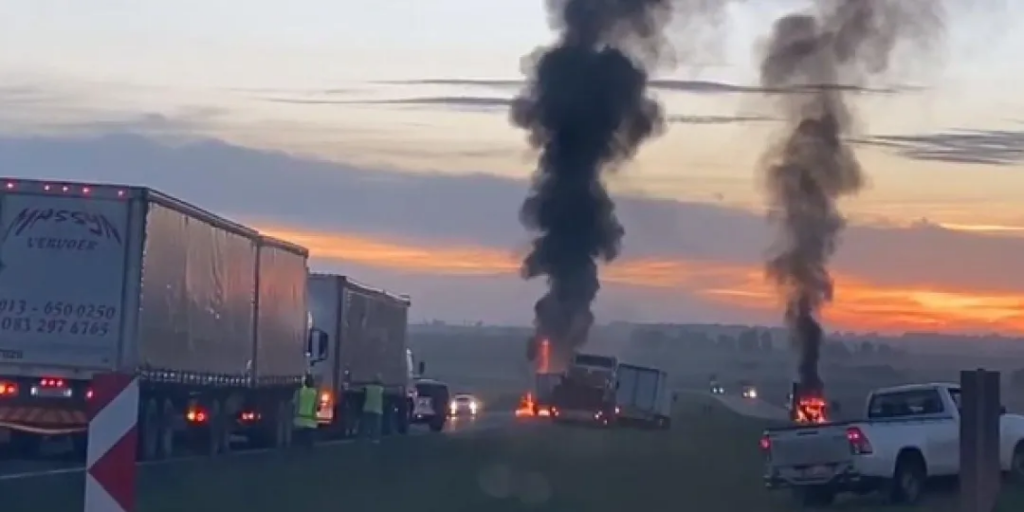
The South African fiscus lost R9 billion due to attacks against trucks on the roads during the 2021/2022 financial year, a sum that the country can ill afford to lose.
This was the concern raised by Road Freight Association CEO, Gavin Kelly, who highlighted the challenges facing the local supply chain at the Transport Evolution Africa Forum & Expo in Durban on Thursday.
Kelly said organised crime was hammering the industry and some businesses, and even members of the RFA, had taken the decision to move their customers’ freight via the Port of Maputo rather than risk driving on the roads to Durban Port, which once had the reputation of being a gateway to global trade.
He said challenges facing the supply chain included crime, weather, labour strikes and unrest, the destruction of crops and facilities, loadshedding, geo-political-related shortages, volatile fuel prices, corruption and a lack of security.
“It isn’t only over the last couple of weeks but over the last couple years we have been facing a lot of disruption in the supply chain – government and the customer need to understand that this is a supply chain, not a single mode of cargo moving through a single type of transport like road, rail or air.”
Kelly said the biggest threat facing the supply chain was organised crime, which seemed to feed on opportunities created by service delivery protests.
“Our biggest threat is security, and it is becoming more and more of a daily problem.
“It’s almost like there is a well-orchestrated plan to take these opportunities and to keep hitting the supply chain. Business outside South Africa has said ‘we are going to move (business elsewhere) because the supply chain is so porous due to the number of attacks’. A number of my members have decided that, because of the increase in attacks, they are moving to the Port of Maputo from the Durban Port. It’s like a small river and once the trickle starts it gets bigger and bigger,” said Kelly.
“Last year we lost R9 billion to the fiscus in terms of attacks on the logistics chain…what could we have done with R9 billion? We could have built hospitals, schools and basic services. We can’t afford to bleed that kind of money.”
He said research had shown that the top commodities stolen during 2020 were fuel, electronics, food and beverages, pharmaceuticals, alcohol, tobacco and medical supplies. Hotspot zones included Durban, Johannesburg, Pretoria, Cape Town and Gqeberha.
“The crime is organised and the syndicates are getting so organised outside of South Africa. Some of the crime is planned, executed and perpetrated through the cross-border import/export chains and that’s something we have to look at in our ports,” Kelly said.
He added that the industry had been talking for decades about moving freight from road to rail transport, but all modes of transport needed to be considered.
“There is a lot of talk about trying to move freight to rail but what we have said at the RFA is that there is a whole network of modes that need to be employed, and it is not just road and rail. Trucks get hit on the road continuously and if we move goods to rail, we need to find ways to secure rail,” he said.
Source: Transist file photo (29 September 2022)



